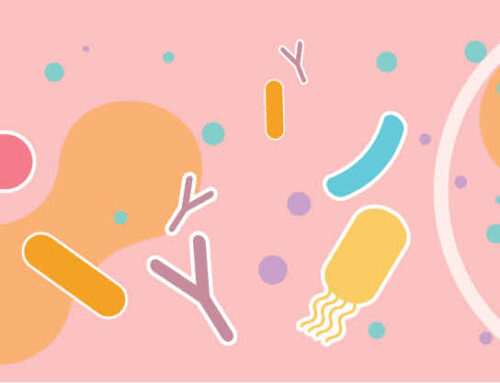Iodine is an essential mineral commonly found in a variety of foods, especially animal products such as shellfish and dairy. It is such an important mineral that in 1924, to prevent the prevalence of goiter in the population, the US recommended manufacturers add iodine to table salt to ensure Americans got enough of it in their diets.
Fast forward one hundred years and healthy lifestyle now lean toward plant-based, dairy-free, low-salt diets and a preference for natural sea salt over iodized salt. The result? We may not be getting as much iodine as we once did.
What does iodine do?
Your thyroid gland uses iodine to make thyroid hormones. The two thyroid hormones are T4 or thyroxine, and T3 or triiodothyronine. T3 has three atoms of iodine and T4 has four atoms of iodine. Those hormones regulate a number of functions in the body from metabolism to cognitive function.
What are the signs and symptoms of iodine deficiency?
Swelling of the thyroid gland
As blood levels of iodine decrease, the thyroid gland, located in the neck, gets bigger. This is because it’s trying to grab what little iodine there is in the blood stream. In this sense, it’s casting a wider net. More thyroid tissue, the more it can mop up circulating iodine. The swelling can be felt long before it’s seen with the naked eye but gets really enlarged, it will appear as a lump in the neck; called a goiter.
Low levels of thyroid hormones
It goes without saying. Low intakes of iodine will result in lower levels of the very hormones that rely on iodine as a building block.
Weight gain or inability to lose weight
If you are experiencing weight gain or difficulty losing weight, your metabolic rate may be low. Inexplicable weight gain can be a sign of iodine deficiency or insufficiency.
Fatigue and weakness
One of the primary symptoms of low thyroid hormone levels and/or hypothyroidism is feeling tired, run down, and fatigued. Women also report that their mood is low, they feel cold, and notice their concentration is off – all symptoms of iodine deficiency as well.
Dry, flaky skin
Studies have found that those with low thyroid hormones levels may experience dry skin. Women who are peri-menopausal or postmenopausal are routinely told their flaky, dry skin is just part of losing their cycle. Thyroid hormones also regulate sweat. Iodine deficiency can lead to less sweat which normally helps to hydrate the skin.
Brittle nails
Like the skin, the fingernails tell a lot about your health. Thyroid diseases such as hypothyroidism (low thyroid hormones as a consequence of iodine deficiency) may cause brittle or splitting nails.
Cold intolerance
Those with low levels of thyroid hormones routinely complain of intolerance to cold temperatures. This relates to iodine’s role in your metabolic rate. Simply put, a slower metabolism creates less heat and less heat will make you feel more chilled.
Problems with concentration & memory
Iodine is needed for memory formation and cognitive function. Clinical and functional deficiencies can affect your ability to concentrate, learn and remember (a.k.a. brain fog).
Mood disorders
Low thyroid levels are associated with both depression and anxiety. Low levels of T4 and the active thyroid hormone T3, negatively impacts levels of serotonin, dopamine, and GABA. All of which influence cognition, behavior and mood.
How is iodine deficiency prevented?
We recommend assessing your iodine intake or testing the iodine levels in your urine. When a deficiency is seen, the best defense is to ensure you’re getting enough of this precious mineral through a variety of foods rich in iodine. If you’re a vegan or vegetarian, seriously consider taking a quality mineral supplement, or strive to consume seaweed several times a week as land-based plant foods are poor sources of iodine. A good target is 100 to 150 mcg in your diet daily.
Best foods sources of iodine include:
- Fish, shrimp, seafood
- Eggs
- Lima beans
- Nuts
- Meats
- Dairy products
- Seaweed (nori, wakame, kombu kelp)
- Iodized table salt (which is readily available in North America. Processed foods, however, such as canned soups, almost never contain iodized salt)
- Prunes
If you do use common table salt, know that iodine is volatile and evaporates easily. So if you’ve had salt sitting around for a year or longer, much of the iodine may have been lost.
In this country we rarely see people walking around the streets with full-on goiters, however iodine is needed for all the endocrine glands and similar to goiter, cysts can form in breasts or ovaries as a result of deficiency. I frequently see patients with iodine deficiencies and you, too, may not be receiving iodine’s full benefits.





